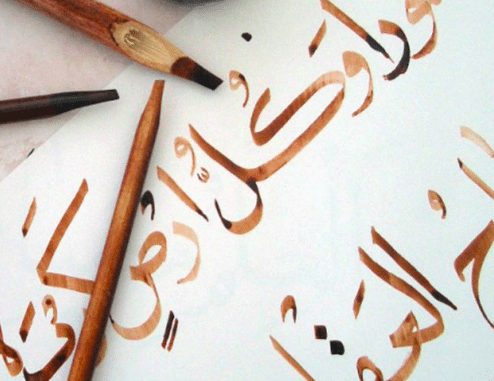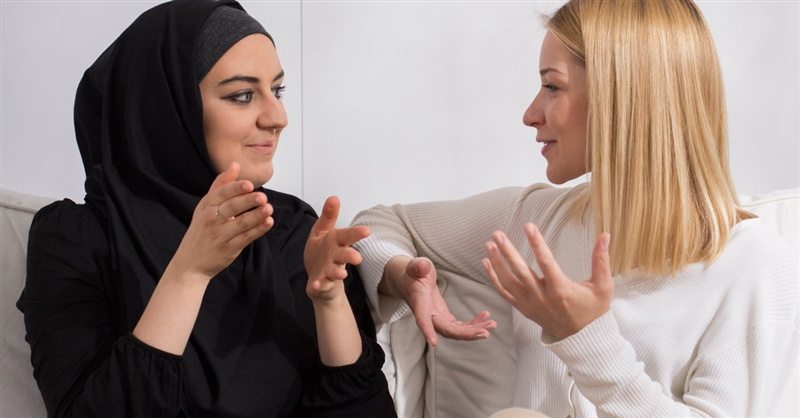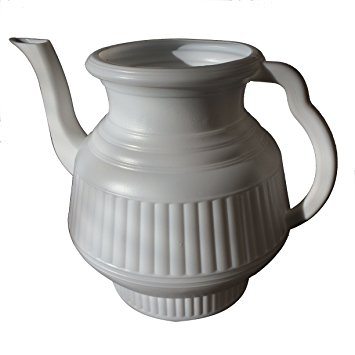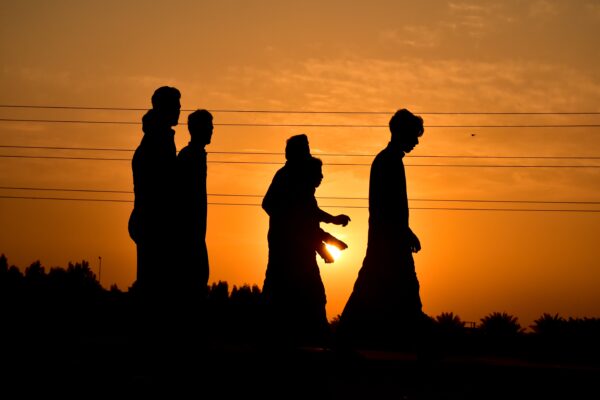Ten simple, yet life-changing things to keep in mind.
Ten simple, yet life-changing things to keep in mind.
1 – Maintain your identity
As a new Muslim, there will be a lot of ideas being pushed on you. Coming to Islam shouldn’t be an abandonment of the things that made you, you. It should be confirmation of the things you’ve always been or have always wanted to be. If it hurts, makes things harder, or forms destructive patterns in your thoughts or behaviours, something is certainly not right. But, to be fair, that goes for anything. It’s not exclusive to religion, or Islam in particular. Also, learn the power of NO. Allah Subhanahu Wa Ta’ala did not create you to please the humans. He created you to worship Him. That must take priority.
“And I did not create the jinn and mankind except to worship Me.” [Surah Adh-Dhariyat. 51:56]
2 – Understand that as a new Muslim, you have unofficially become a billboard for Islam
This is especially applicable in the case of hijab-wearing Muslim women. Everyone who sees you will associate your words, actions, and behaviours with Islam as a whole. Yes, this is terribly unfair. But, it is a stark reality in the West.
It should be understood that the title of Muslim bears inherent responsibility but, I must underscore this on the part of the Western convert. By our very nature, we become targets and we owe it to Allah (swt), ourselves, and the Muslim community as a whole to be both responsible with and knowledgeable of our Islamic obligations.
3 – Loneliness is a universal revert problem
Everyone knows it. Some people try to talk about it. Most people try to sweep it under the rug or tell new Muslims to have sabr (patience) and pray to Allah Subhanahu Wa Ta’ala. Which is always sound advice, yes, but it also marginalizes the spiritual and emotional well-being of an entire section of Rasulullah’s Sallallahu Alaihi Wa Sallam ummah, and as far as I can tell, is in direct contrast to how Islam tells us to be:
“The believers are but brothers, so make settlement between your brothers. And fear Allah that you may receive mercy.” [Surah Al-Hujurat. 49:10]
But what can new Muslims do to combat the chronic unease of so-called ‘Revert Limbo,’ you ask? Network! Even if the only thing you do is drag yourself to a masjid for prayer once a week, you have to put yourself out there. The internet is great for easy connections, but it’s the equivalent of digging for a needle in a haystack when we go in search of halal education and inspiration – much less productive dialogue and mutually beneficial connection. No website can help you the way a brick-and-mortar mosque filled with brothers and sisters and a trusted Imam can. Isolation is the new Muslim’s enemy and one of the many tools of the shaitan working against us.
“The believing men and believing women are allies of one another. They enjoin what is right and forbid what is wrong and establish prayer and give zakah and obey Allah and His Messenger. Those – Allah will have mercy upon them. Indeed, Allah is Exalted in Might and Wise.” [Surah At-Tawbah. 9:71]
4 – Study Arabic but, be realistic
Nobody can learn an entire language in a month. Give yourself a break. Allah (swt) is not angry with you for keeping a list of short surahs by your prayer mat. With preparation, study, and repetition (which there should be plenty of during the fard prayers) it takes less time than you might think. I still keep a notebook dedicated to Islamic studies and prayer. In it, I’ve written the step by step instructions to each of the prayers, the Arabic transliterations, and the English definitions of required words and phrases, along with some of my favourite duaas.

Sounding out transliterations isn’t a perfect method but, short of memorizing vocal recitations, it’s the best way to start, in my opinion. God won’t be mad at you for glancing to a notebook while you learn your prayers. At least this way, you’ll be far more likely to learn them correctly. Part of this is reading the Qur’an. The word of God will never lead you wrong. You don’t have to read it in Arabic if you don’t know Arabic. You don’t have to read a particular English translation.* Just read it. It will do what it was meant to do.
*There are a lot of folks who will tell you that the particular English translation you read plays a big part in comprehension but, to those people I’d say that any English translation is a pale comparison to the original Arabic. The fact is, English will never provide the full depth of meaning as the original and intended Arabic version. Any translation is a watered-down estimation of God’s word. Sure, some English translations are considered more accurate than others but, the phrase “lost in translation” holds merit either way.
Additionally, you really should make efforts to listen to Arabic recitations of the Qur’an. It’s essential. You don’t need to understand it to appreciate it, or to feel the significance of it. Again, it’s literally God’s word. It will do what it was meant to do. Just listen. For me, personally, I try to listen to at least one Surah every night before I fall asleep but you should find a schedule that works best for you!
5 – Don’t be afraid to ask about the things you don’t understand
Intellect (aql) and the pursuit of knowledge are highly esteemed in Islam. In the Qur’an, Allah (swt) consistently urges us to use our mental faculties.
“Indeed, the worst of living creatures in the sight of Allah are the deaf and dumb who do not use reason.” [Surah Al-Anfal.8:22]
“And it is not for a soul to believe except by permission of Allah, and He will place defilement upon those who will not use reason.” [Surah Yunus. 10:100]
Be sure to ask a qualified, knowledgeable person who fears Allah (swt). A good rule of thumb is to listen more than you speak. By the same token, don’t be afraid to admit when you do not know something. Islam is vast and deep in both literature and tradition. In my experience, it’s important to approach Islam, as a new Muslim, with the idea of all that we don’t know. At least in comparison to born Muslims, all converts begin in a childlike manner, Islamically speaking. There’s a learning process for everyone. Be gentle with yourself. Stay honest, submit to Allah (swt), and you’ll stay true.
6 – Be responsible with non-Muslim relationships
No, you don’t have to terminate all non-Muslim relationships. In fact, especially where your parents are concerned, this is not recommended. But, you should be well aware that we become like the people and situations we spend the most time with or in. You should be aware that the things you are exposed to, on every single level of life, eventually become a part of you, whether you intend it or not.

Islam does not forbid having friendships with non-Muslims but, in my own experience, there are always going to be relationships that can’t survive the transitions of conversion, especially so if their entire foundations are haram. As a Muslim, you must have ethical relationships. Friends don’t have to bond over religion, but we do have to share common values, or else we end up contributing to mutual destruction. The bottom line: no Muslim should be maintaining relationships that defy God’s commands.
“And, [moreover], this is My path, which is straight, so follow it; and do not follow [other] ways, for you will be separated from His way. This has He instructed you that you may become righteous.” [Surah Al-An’am. 6:153]
7 – People are people, everywhere you go
One of the things I really appreciate about Islam is the adamant insistence that Allah Subhanahu Wa Ta’ala is our only true comfort in this dunya. If you can give your heart to God, humans won’t be able to break it.
So do not weaken and do not grieve, and you will be superior if you are [true] believers. Surah Ali ‘Imran 3:139
And will provide for him from where he does not expect. And whoever relies upon Allah – then He is sufficient for him. Indeed, Allah will accomplish His purpose. Allah has already set for everything a [decreed] extent. Surah At-Talaq 65:3
We, as humans, aren’t always what we claim to be, or sometimes even what we’d like to be. Created weak and fragile, our actions, too often, fail to match our words. In our relationships, we crowd and exhaust each other with unrealistic expectations and our own unconfronted personal inadequacies. Thanks to mainstream culture and the associated destabilization of the family unit, interpersonal relationships have more or less decomposed into parasitic outcome-based transactions rather than genuine and unadulterated communicative interactions.
To be quite frank, my point is this: eventually, we all meet terrible people who label themselves otherwise. People are not the labels they hide behind. All of us are the resulting combination of the things we see, do, watch, hear, think, and feel. And the combination of these variables are endless. People are, and always will be, people but, one bad Apple doesn’t ruin the bunch, as they say.
Also, try to take advice with a grain of salt. Even, or especially, mine. We generally mean well but, not every perception has to become your reality. Nobody looks out for your interests like Allah (swt) does. I’d like to pass on a tip that was gifted to me: If you’re ever confronted with unsolicited advice or forceful suggestion, don’t be afraid to ask for a source. A large majority of the time, this will stop any further pressure because, at least in my personal experience, the people who insist on policing others the most study their religion the least. Maybe Allah (swt) isn’t taking you to the same place that all these helpful others are heading.
My advice when dealing with people, in general, is to approach them as individuals on a person-to-person basis, making every attempt to abandon any generalized or stereotypical biases to the best of our ability.
8 – Diversity in thoughts and opinions should be celebrated, not disputed
Nobody has to think exactly the same. We can be brothers and sisters without being the best of friends. We have a personal responsibility to be good to each other.
“The believers are but brothers, so make settlement between your brothers. And fear Allah that you may receive mercy. O you who have believed, let not a people ridicule [another] people; perhaps they may be better than them, nor let women ridicule [other] women; perhaps they may be better than them. And do not insult one another and do not call each other by [offensive] nicknames. Wretched is the name of disobedience after [one’s] faith. And whoever does not repent – then it is those who are the wrongdoers.” [Surah Al-Hujurat. 49:10-11]
“And if your Lord had willed, He could have made mankind one community; but they will not cease to differ.” [Surah Hud. 11:118]
How, you ask? Take off your culture glasses.
We are all products of our upbringing, trapped in our own perceptions and generally unaware of the collective reality at large, outside of what the popular news media or our Facebook feeds tell us. So this piece of advice may seem complex but, it is actually very simple: try to see someone else’s situation through someone else’s eyes. Empathy is the key to bridging understanding. How can we expect it from others if we cannot give it ourselves?
9 – God is the only Judge
“Indeed, your Lord will judge between them by His [wise] judgement. And He is the Exalted in Might, the Knowing.” [Surah An-Naml. 27:78]
“Indeed, your Lord is most knowing of who has gone astray from His way, and He is most knowing of the [rightly] guided.” [Surah Al-Qalam. 68:7]
A lot of people are confused about this. Don’t be one of them. In the end, we will all answer to our Creator. It’s important to remember that two people can practice one religion in different ways, or derive different interpretations from one text but, it’s not up to either of them to pass Allah (swt)’s judgement on others.
Bottom line? Nothing inside this creation is al-Alim, al-Hakam. (the All-Knowing, the Judge)
10 – Keep a watering can in your bathroom
Istinja is one small part of Islam’s comprehensive bathroom etiquette, and subsequently, one of the topics that aren’t a popular discussion in the community. But, as a new Muslim, it’s one of the foundations of hygiene and something we should all be made aware of.
Istinja is to be performed after impure emissions (we’re still talking toilets here). Save yourself a lot of hassle with a tiny watering can (lota), and maybe, if you’re worried about family or curious guests, an inconspicuous houseplant near the toilet.
Anas bin Malik said: “When the Messenger of Allah (ﷺ) would go to the toilet, I and another boy like me would bring a small leather vessel of water and he would clean himself with water.”
[Sahih Hadith: Sunan an-Nasa’i – The Book of Purification.Volume 1, Book 1, Hadith 45]by Claire Grulkey





